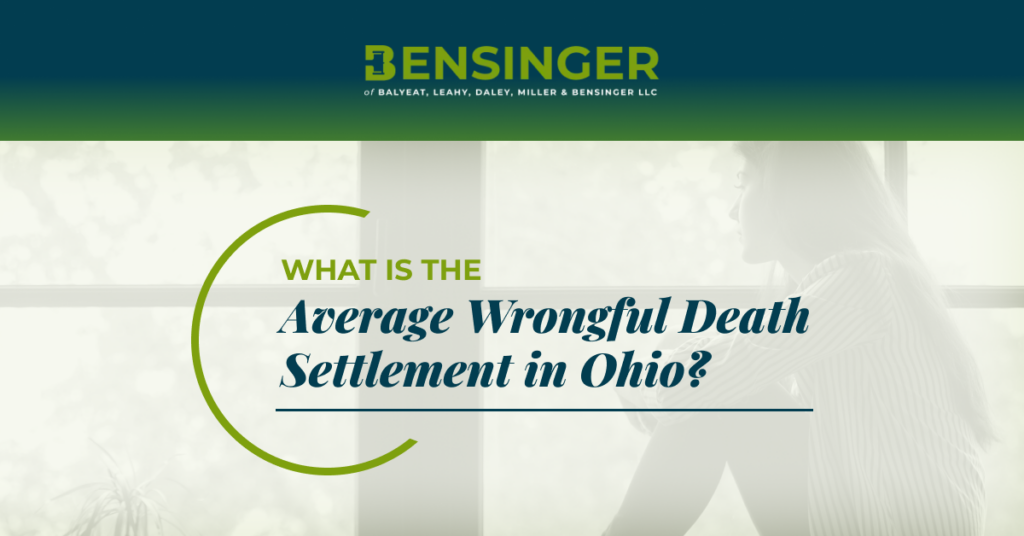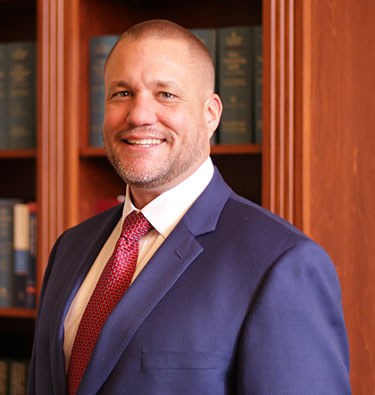
Compared to a typical personal injury case, a wrongful death case can be much more significant. Because of this, the settlement amount for a wrongful death case may also be much more significant.
Because settlements are not public, it is impossible to give an average amount of a wrongful death settlement in Ohio. Additionally, there is no ordinary wrongful death. The circumstances of any wrongful death vary quite a bit.
Different factors will affect the total amount of any wrongful death settlement. An experienced Ohio wrongful death lawyer can help determine which of these factors impacts your case most.
Give us a call at (419) 455-1410 or fill out our online form today for a free case evaluation.
Contact us for a free consultation
What Is the Purpose of a Wrongful Death Settlement?

A wrongful death settlement provides a means of compensation to the family members.
Typically the spouse, children, and parents—of a deceased individual whose death was the result of another party’s negligent, reckless, or intentional actions.
The personal representative of the deceased person’s estate brings a claim for the benefit of the family members (also referred to as beneficiaries).
An average wrongful death settlement in Ohio aims to assist with the emotional and financial hardships that the survivors may face after their loved one’s untimely demise.
While these settlements do not replace the void left by a loved one’s departure, they allow the grieving family to begin healing and move forward with their lives.
How Much Is a Wrongful Death Lawsuit Worth?
The value of a settlement depends on recoverable losses and factors leading to the death. First, the court will add up the beneficiaries’ expenses and losses. Then it will review the circumstances surrounding the deceased’s death. If the deceased shares any fault, the court will deduct this from the beneficiaries’ losses.
What Compensation Can You Receive in a Wrongful Death Settlement?
The compensation that the survivors can receive encompasses a range of losses and damages resulting from the untimely death of their loved one.
The specific compensation can vary depending on the circumstances of the case, but it commonly includes the following.
- Funeral and burial expenses. The settlement will often cover the costs associated with arranging and conducting the deceased person’s funeral and burial.
- Lost support. This compensation addresses the financial support the deceased would have provided their family had they not died. It may include the deceased’s future earning potential, bonuses, and other employment-related benefits.
- Mental anguish. Beneficiaries can receive damages to compensate for the mental and emotional trauma they experience after a loved one’s death. Calculating these damages can be challenging, so working with a wrongful death attorney can help.
- Loss of society. This element of compensation covers the loss of consortium, companionship, guidance, and other support that surviving family members would have received from the deceased. Surviving relatives sometimes struggle to calculate this figure, but an attorney can help you determine a likely award based on the average wrongful death settlement in Ohio.
- Loss of service. Beneficiaries often incur costs related to the services their loved one performed. Examples of services include housekeeping or childcare, which the beneficiaries will now need to pay for or do themselves.
- Loss of inheritance. A wrongful death can cause someone to pass away earlier than expected. A beneficiary can receive damages for how this untimely death affects the value of their inheritance had the deceased lived a full life.
- Punitive damages. In cases of extreme negligence or intentional wrongdoing, punitive damages may be awarded to punish the responsible party and deter future similar actions.
Keep in mind that different factors will affect the total amount of any wrongful death settlement. A wrongful death lawyer can help determine which of these factors impacts your case.
Examples Of Determining Factors
The following list of factors help determine what a potential wrongful death settlement can be.
Age of the Deceased
The age of the deceased party can have a significant impact on the total settlement. If the deceased is older, their loved ones are likely to get less compensation. For example, the financial impact of an 80-year-old retiree’s wrongful death will typically be significantly less than that of a 40-year-old working person’s death. Likewise, the years of love, guidance, and emotional support lost to loved ones will be fewer if the victim is older.
The Age and Existence of Dependents
The age of the decedent’s dependents is another important factor in determining what a good settlement is worth. If the decedent has young dependent children, the settlement amount increases. If a dependent is older, the settlement will be smaller.
However, age is not the only factor with dependents. Some people have disabled adult children who continue to depend on them for financial support well beyond childhood. This will be factored into any settlement value.
Earning Potential
The deceased’s earning potential is also an important factor in a settlement. Here, the question is, “What would the deceased have earned in the years before their retirement?” The deceased’s earning potential is closely linked with their age. The average income of the deceased is combined with an expected date of retirement to help determine a settlement amount.
The deceased’s education and training also factor into the settlement amount. A 30-year-old surgeon will have a much higher future earning potential than a grocery store clerk of the same age.
The Deceased Acted Negligently
The deceased’s negligence or partial fault could have contributed to their death. If so, it can potentially lower the amount of a wrongful death settlement.
The court will determine how much fault the deceased shared in their death. Then, the court can reduce the settlement amount based on that percentage.
Other Factors
There are plenty of other factors that can impact wrongful death settlements in Ohio, including:
- Whether the death occurred at work with the employer at fault;
- Whether the deceased is due life insurance, pensions, or retirement benefits;
- Whether negligence, intent, or recklessness of the at-fault party exists; and
- Whether the at-fault party has insurance covering wrongful death claims.
Your attorney can help you determine how these factors may be relevant to your wrongful death case.
How Is Wrongful Death Compensation Distributed?
Ohio law governs the distribution of wrongful death compensation. This statute ensures that the surviving family members receive a fair and equitable share of the damages.
Typically, the compensation is distributed to the surviving beneficiaries, presumably the spouse, children, and parents of the deceased. The court determines how to allocate compensation by considering factors such as financial dependency, loss of support and companionship, and the degree of relationship with the deceased.
Keep in mind that this process is for the average wrongful death settlement in Ohio. The law allows for flexibility in distribution. A wrongful death attorney can demonstrate to the court how the unique circumstances of a case require deviating from the usual process.
Lump Sum or Structured Settlement
A wrongful death settlement can be paid out to the surviving family members in either a lump sum or through a structured settlement. The choice between the two options depends on the preferences and needs of the beneficiaries.
Lump Sum Settlement
Under this structure, the beneficiaries receive all the compensation in one single payment.
A lump sum provides immediate access to the full amount of compensation. This can be especially beneficial for addressing pressing financial needs, such as funeral expenses, medical bills, or outstanding debts. Beneficiaries also have the flexibility to use the funds as they see fit, which may include investing, saving, or making large purchases.
Structured Settlement
A structured settlement involves the distribution of the compensation over a specified period. The beneficiaries typically receive regular payments, monthly or annually, for an agreed-upon duration.
This option can provide financial security and stability over the long term. It ensures that the beneficiaries receive a steady stream of income to cover ongoing expenses, future needs, and potential income replacement.
Structured settlements are commonly used when there are minor beneficiaries involved, as it can ensure they receive financial support well into the future. These settlements are also tax-advantaged, as the periodic payments are often tax-free.
Consult Our Accomplished Ohio Wrongful Death Attorney Today
If your loved one suffered a wrongful death due to the fault of someone else, all of these factors must be accounted for. For this, you need an attorney with experience with Ohio wrongful death cases. They know the average payout in a wrongful death suit and can help you determine the value of your case.
Bensinger Legal Services, based in Northwest Ohio, has this experience. We are a client-focused law firm that serves all of Ohio. Contact us online or call (419) 455-1410 today.


